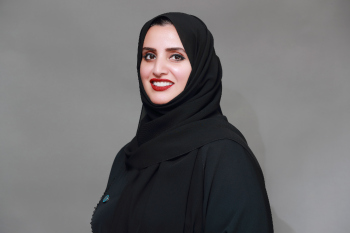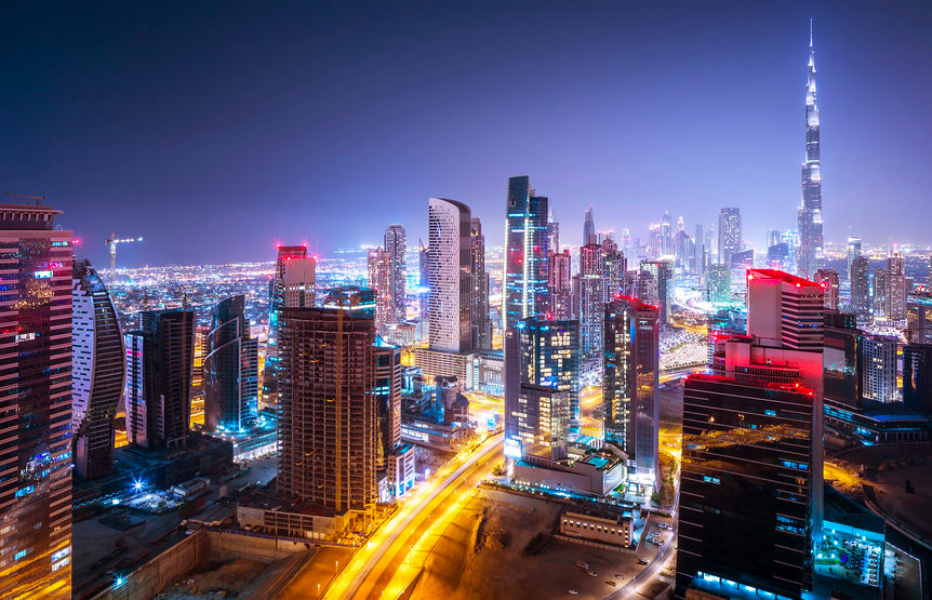
While other global cities are still fine-tuning smart transportation systems and smart energy networks, Dubai is taking the smart city concept to the next level and exploring the possibilities of artificial intelligence (AI) to transform the entire relationship between a city and its residents.
“Our ultimate aim with AI is to let the city of Dubai talk to its people,” says Dr. Aisha Bin Bishr, DG of the Smart Dubai Office (SDO). “We want to use AI to help the city understand what its residents are looking for and then reshape itself to give people what they need when they need it.”
As a first step towards this futuristic vision of city life, earlier this year the SDO added a virtual personal assistant service called Rashid to Dubai Now, a popular smartphone app that bundles nearly all the city’s public services into one easy-to-use platform.
“We are rising to the challenge of being the world leader in AI.”
Dr. Aisha Bin Bishr, DG, Smart Dubai Office
In the future, Smart Dubai plans to use AI to personalize the experience of the app for each user: trawling data from social networks and city platforms, Rashid will learn to understand the individual preferences and requirements of every person, notify them of what they need to do well in advance of any deadline and suggest new ways of enriching the experience of living in Dubai.

“If the Dubai Now app knows from my social media history that I like yoga, when I drop my daughter off at school, it will be able to tell me that there is a yoga class happening nearby that I could attend,” Dr. Aisha says. “It’s just one example of what is possible with AI.”
The United Arab Emirates is the first country in the world to have a minister of state for AI, and the technology is in the vanguard of Dubai’s official ambition to be the world’s smartest and happiest city.
Only by using AI and data analytics, Dr. Aisha says, can a city truly understand the varied personal and professional needs of millions of residents and then act on that knowledge.
“We want to be the first in the world when it comes to implementing AI not just for the sake of being first, but for our people’s benefit,” Dr. Aisha says. “AI is like a young child: it is a platform that you need to teach. The sooner we can feed it data the sooner it can start learning patterns and finding new efficiencies in everyday life.”

In no other city in the world does innovation in AI enjoy such strong backing from governmental authorities. “It is not just about having the vision, it is also about the implementation,” Dr. Aisha says. “No other city has a government body like Smart Dubai that orchestrates all the separate parts and makes sure that we can implement our shared vision with success.”
The potential benefits of AI in Dubai extend well beyond the world of civic services. For the last year, visitors to selected branches of the Emirates NBD bank have been interacting with a friendly robot called Pepper, which helps customers select services and leave feedback.
Before long, AI will become widespread in core banking processes such as fraud detection and credit scoring, says Munyuki Evans, chief digital officer of Emirates NBD: “AI is going to be a critical part of the future of banking.”
“AI can revolutionize the manner in which we screen patients.”
HE Humaid Al Qutami, DG, DHA
In Dubai’s healthcare sector, doctors and hospitals are now testing the technology’s potential to manage chronic diseases and to screen and monitor patients. A project in the Dubai Diabetes Center, run by the Dubai Healthcare Authority (DHA), found that AI could detect diabetic retinopathy in a patient’s eyes in just 10 minutes, as opposed to four days when relying on human analysis.
In a radiology project, the DHA found that an algorithm was able to correctly identify diseases in chest x-rays about 95% of the time.
“We are keen to explore the use of AI applications to enable fast detection of chronic and critical diseases and to help improve clinical productivity,” says HE Humaid Al Qutami, DG of the Dubai Healthcare Authority. “We want to make a quantum leap in AI”![]()
As published in TIME magazine









